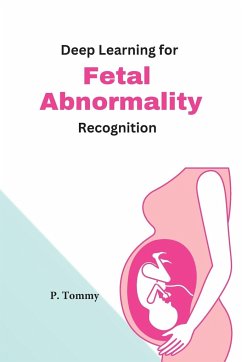The book "Deep Learning for Fetal Abnormality Recognition" authored by P. Tommy provides a comprehensive overview of using deep learning models to recognize abnormalities in fetal images. The book discusses the challenges faced in detecting fetal abnormalities and how deep learning techniques can be used to overcome these challenges. The author presents a detailed analysis of various deep learning techniques such as convolutional neural networks, recurrent neural networks, and generative adversarial networks, and how these techniques can be used for fetal abnormality recognition. The book also covers the use of transfer learning and data augmentation techniques to improve the performance of deep learning models. The book provides numerous case studies and practical examples of the application of deep learning for fetal abnormality recognition. The author also discusses the importance of creating high-quality and diverse datasets for training deep learning models. This book is a valuable resource for researchers and practitioners working in the field of medical imaging, computer vision, and deep learning. It provides a comprehensive understanding of the challenges involved in detecting fetal abnormalities and the ways in which deep learning techniques can be used to improve accuracy and efficiency. It also highlights the importance of creating high-quality and diverse datasets for training deep learning models to improve the accuracy of fetal abnormality recognition.







